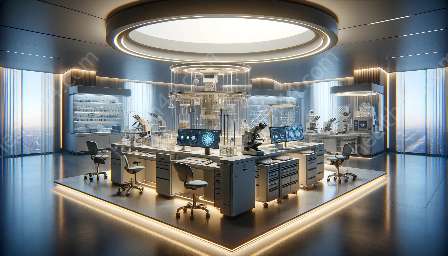Incubators play a crucial role in the medical and laboratory fields, providing controlled environments for the growth and development of various biological cultures. This comprehensive guide explores the applications, types, and benefits of incubators, as well as their compatibility with laboratory equipment and medical devices.
1. Understanding Incubators
Incubators are specialized devices designed to provide an optimal environment for the growth of microbiological cultures, cells, tissues, and other biological samples. They offer precise control over temperature, humidity, and other environmental factors to support the growth and development of living organisms.
1.1 Applications of Incubators
Incubators find extensive use in medical research, microbiology, biotechnology, and clinical laboratories. They are essential for culturing microorganisms, maintaining cell lines, conducting in vitro fertilization procedures, and incubating diagnostic tests.
1.2 Types of Incubators
There are several types of incubators, including microbiological incubators, CO2 incubators, and refrigerated incubators. Each type is designed to create specific environmental conditions suitable for different applications, such as bacterial culture growth, mammalian cell culture, and preservation of samples at low temperatures.
1.3 Benefits of Incubators
Incubators offer numerous benefits, including the ability to maintain sterile conditions, control contamination, and ensure the reproducibility of experimental results. They also support the uniform growth of cells and enable the long-term storage of biological samples.
2. Compatibility with Laboratory Equipment
Incubators are compatible with a wide range of laboratory equipment, including microscopes, centrifuges, shakers, and spectrophotometers. These instruments are often used in conjunction with incubators to facilitate various experimental procedures and analyses.
- Microscopes: Microscopes are utilized for observing and analyzing biological specimens cultured in incubators, allowing researchers to monitor cell growth, morphology, and behavior.
- Centrifuges: Centrifuges are used to separate cellular components and biological materials, and samples processed in incubators may require centrifugation for further analysis and experimentation.
- Shakers: Shakers are employed to agitate and mix cultures or reagents within incubators, promoting the uniform distribution of nutrients and gases throughout the samples.
- Spectrophotometers: Spectrophotometers measure the absorbance or transmission of light by samples, enabling researchers to quantify biomolecules and assess the growth and metabolism of cells within incubators.
These examples illustrate how incubators integrate seamlessly with laboratory equipment, enhancing the efficiency and accuracy of scientific investigations conducted in controlled environments.
3. Compatibility with Medical Devices & Equipment
In addition to laboratory instruments, incubators are compatible with various medical devices and equipment used in clinical settings, hospitals, and research facilities. This compatibility enables the incubation and maintenance of biological samples for diagnostic and therapeutic purposes.
- Biological Safety Cabinets: Incubators and biological safety cabinets are often used in tandem to ensure the safe handling and cultivation of infectious agents and hazardous biological materials.
- Blood Bank Refrigerators: Blood bank refrigerators maintain blood and blood products at optimal temperatures, and incubators may be employed to cultivate cell cultures or perform compatibility testing for blood transfusions.
- Cell Culture Systems: Incubators are essential components of cell culture systems, providing the necessary conditions for the growth and maintenance of cell lines used in biomedical research, drug development, and tissue engineering.
- Thermal Cyclers: The compatibility of incubators with thermal cyclers facilitates polymerase chain reactions (PCR) and other DNA amplification techniques, supporting the molecular analysis of genetic material.
By interfacing with medical devices and equipment, incubators contribute to the advancement of clinical diagnostics, therapeutic treatments, and biomedical research, exemplifying their multifaceted utility in diverse healthcare and scientific domains.
4. Conclusion
Incubators are indispensable tools in the realms of medical research, laboratory science, and clinical practice. Their compatibility with laboratory equipment and medical devices enhances their versatility and utility, enabling a wide spectrum of biological studies and applications. As technology and innovation continue to propel the fields of biotechnology and healthcare forward, the role of incubators in fostering controlled and reproducible experimental conditions remains paramount.


